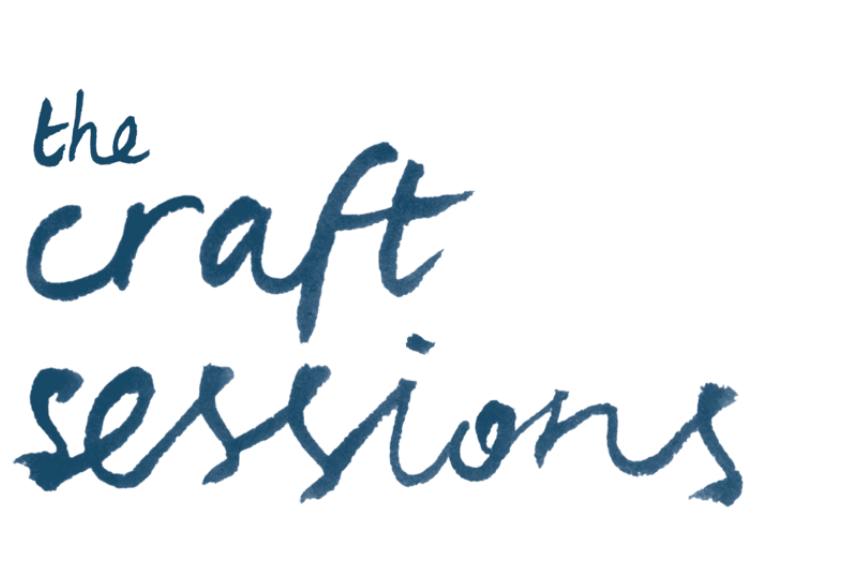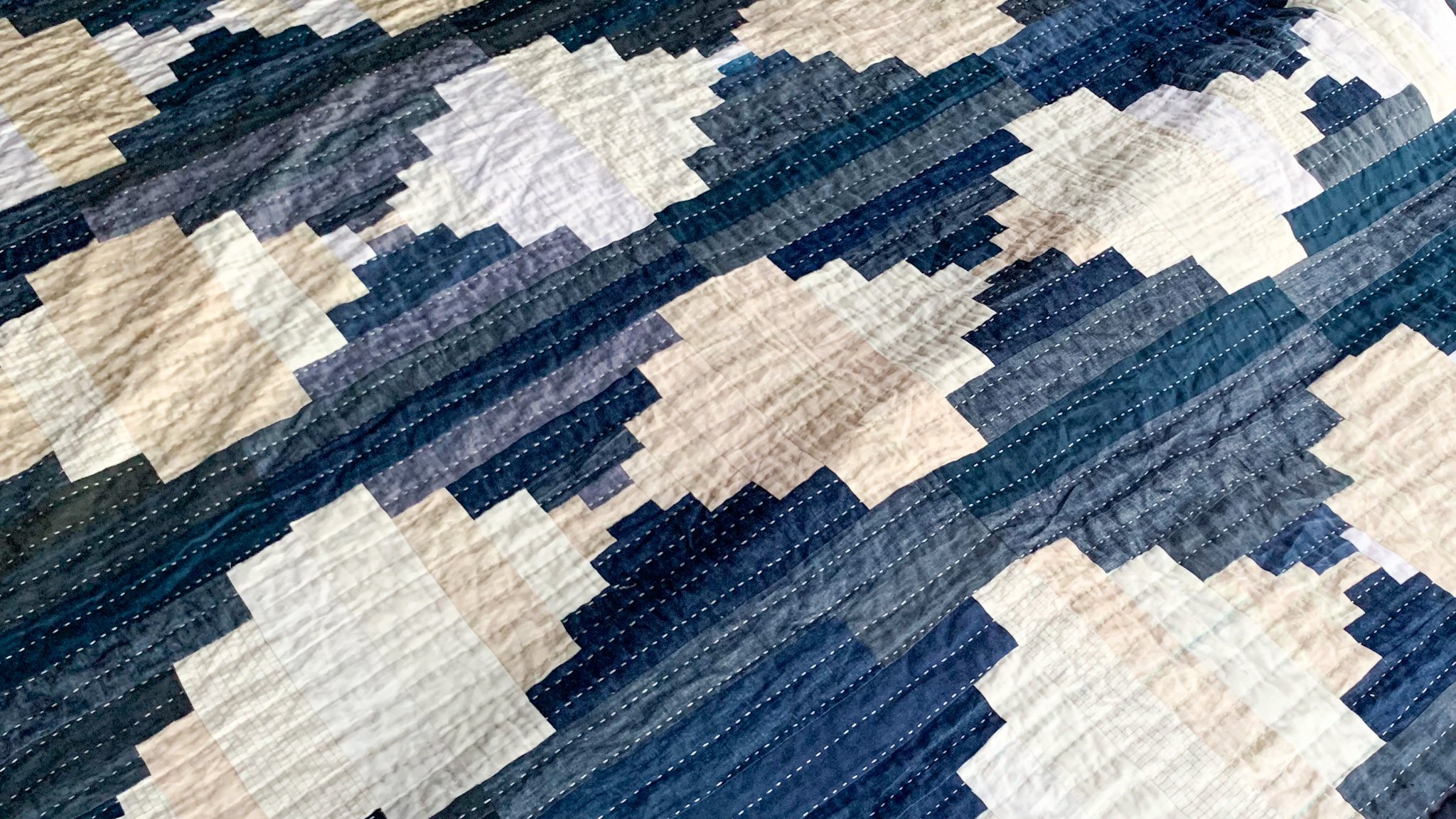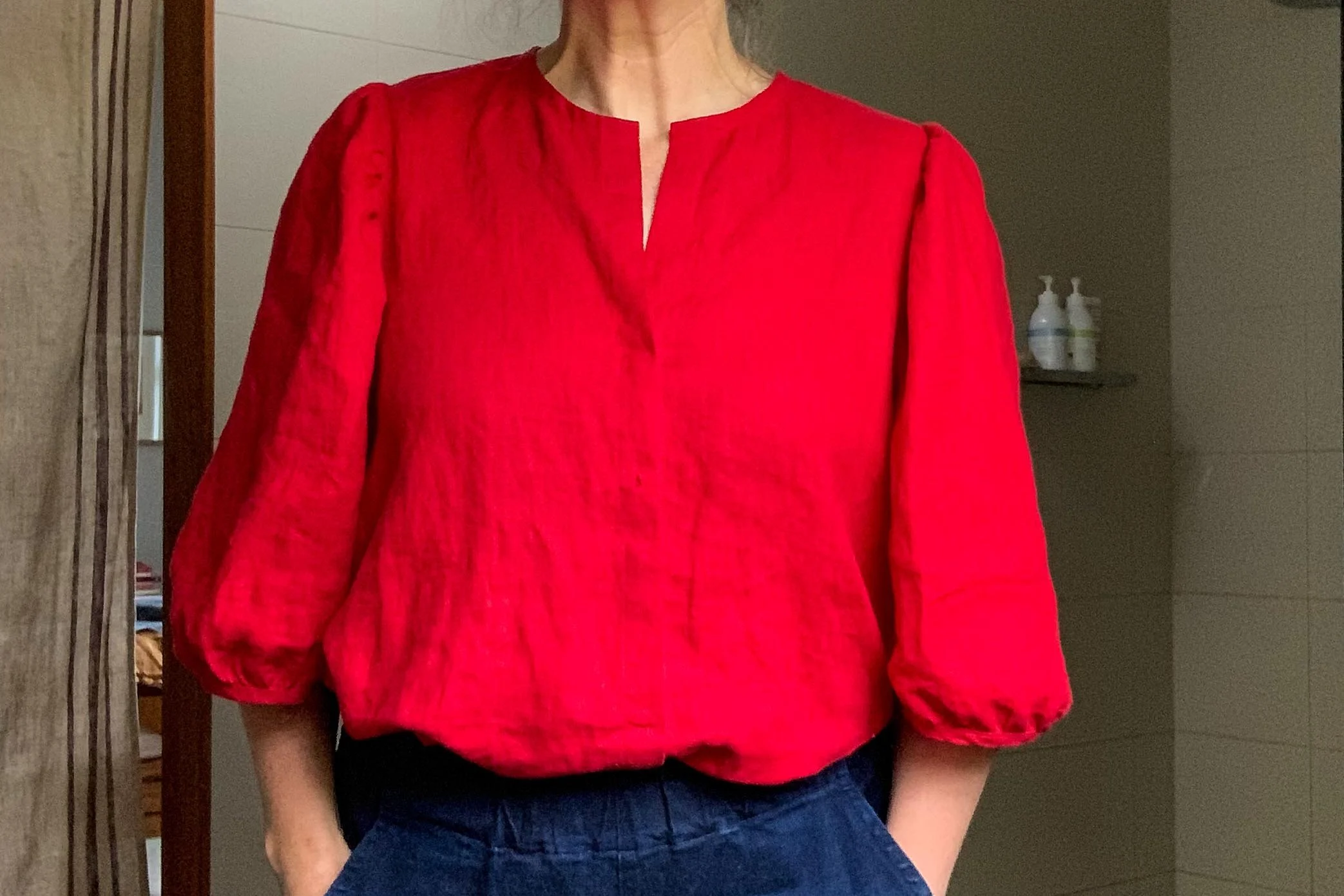A little context: I wrote this post at the start of November, but I haven't posted it and I'm not entirely sure why. Maybe I'm a little unsure about whether my argument holds 100%? I dunno. I do know that it is a discussion I think we should be having. About widening the definition of Slow Fashion and about how our privilege should be used as a force for good. I'd really love to hear your thoughts on this one, especially if you see holes in my logic. I'm only getting around to posting it today because I'm too tired to finish the post I was writing for tomorrow and found this one sitting in the draft folder, almost ready to go. :) Enjoy!
Slow Fashion October is over but I'm still pondering what came up for me during the exercise and in the discussions that followed. Because it is still on my mind - and I use writing to sort these things out - then I need to talk about Slow Fashion, and complexity and privilege and poverty. I'd love to hear your thoughts in the comments if you have any, as I think there is more to be said.
This post was totally sparked by Bristol Ivy's ace discussion on instagram (as part of Slow Fashion October) about the privilege part of Slow Fashion. Some of the comments, that were part of that discussion, were people were talking about how Slow Fashion kinda felt, well, exclusive. While I totally agree with the summation, I've been thinking about it ever since I read it, because I think we might be slightly off track being worried about it's exclusivity, and instead we might need to have a discussion about doing some redefining.
Where to start - well first up you need to go and read Bristol's initial instagram post that sparked the discussion. And if you have time then you should try to hoon through some of the insightful and thoughtful comments. The text of the post is in the quotes below....
“I’m a knitting designer and teacher from Portland, Maine. I grew up in a making household; my mom quilted, sewed, wove baskets, did macrame, knitted, cooked, and myriad more things. The concept of handmade things as a part of my life has never been foreign, and I consider myself so lucky to be able to make it my living today.
But I also know with that comes a huge amount of privilege. One of the things that I sometimes see and want to work most hard against is the economic disparities of slow fashion, both in the large scale that is so prevalent, but also in our own, smaller-scale community. I so wildly rejoice in the idea of beautiful yarn, where the source is clearly traced back to a single farmer or breed. I also think, for the work and thought that goes into them, they are priced fairly. But I also know for the vast majority of knitters, the price point involved isn’t a reality, and I get so angry when those knitters are treated poorly for “lesser” yarn choices. Bluntly, if I didn’t get yarn support for my work (for which I thank every dyer and company I’ve worked with, a million times over), I couldn’t afford the yarn I work with. All this to say that I come to the idea of slow fashion with the idea of making it approachable and attainable for all people, not just those who can afford the ethical or transparent choices—and gain the social capital that goes along with it.
What do I think the idea of attainable slow fashion involves? At its simplest, education. Education for the consumer to create more demand, education for farmers to create more source material, education for producers to create more supply. It’s a huge, sprawling, delicate process, but I’m so excited to see the discussion start. (Pretty sure I’m going to get the Instagram version of some disagrees for this one. But I’m also so tired of how tied socio-economic ability is to social capital and status in the knitting industry. All art and craft should be inclusive, and I think we do a piss-poor job of that sometimes. Slow fashion should be for all.”
Bristol makes such important points; about the connection between social capital and privilege, about the definition of Slow Fashion being inclusive and also about education.
There were a few things that came up for me around the complexity of the problem but the thing that got me really thinking was some folks in the comments saying that there were parts of the Slow Fashion movement that made them really uncomfortable. One or two people mentioned feeling sick..... and they were sick because they felt that the movement was a privileged one and as such was not inclusive. That Slow Fashion was about choosing to use so called "ethical" materials in your craft and that many people just couldn't afford that luxury.
This was a bit of a shock to me as it wasn't how I personally defined Slow Fashion so was I confused about what Slow Fashion was? Or was the definition that existed of this fairly new term just not broad enough.
I was too late to the party to respond directly to Bristol's instagram so I thought that I might respond in this space about complexity, about the definition of Slow Fashion, about privilege and about social change.
IT'S A COMPLEX ISSUE.
I'll start by being Sally-state-the-obvious..... Like nearly every big issue we humans have ever tackled, the ideas around Slow Fashion are complex. However, from what I can see in the commentary - wider than just Bristol's post - the definition we seem to be using about Slow Fashion is that it is basically about using "ethical" materials and then making within an ethical system of manufacturing. By ethical we mean using techniques that are the best for the animals, plants and the earth, and the people who make them.
If that is the case, then I think the definition we have of Slow Fashion is way too narrow and doesn't take into account the complexities of purchasing ethically.
To me choosing Slow Fashion could take many forms. While it could mean purchasing only single source, blah blah , organic, yarn from a well fed sheep but it could also mean purchasing wool from the local woolen mill that may be super wash but is local from a well fed sheep.
For example it might actually be the case that a super wash yarn, produced by people receiving good wages, from sheep who are treated well, that was spun locally but not organically, might actually be more ethical due to transport miles, than a specialist yarn made in England from a single source, purchased from an American company which then ships it to me in Australia. Or maybe not.
Maybe the fact that much of Australia is in drought and so using precious water scouring wool is never ethical so the English wool that has come via an American retailer is more ethical..... Or maybe a Chinese wool would be better. One that was dyed using acid dyes.....etc etc but has less transport miles as it hasn't arrived from England, but then again the Chinese merino often comes from Australia anyway. And is there any transparency around labour practices? Complexities and more complexities.
The thing is that I don't know what is exactly the most ethical choice and so I'm called upon to make a decision based on what I know, what I can find out, what I need and my purchasing power at the time.
Along the same lines as the choices we make about food, the choices we make about clothing and materials are complex, and the discussion is full of grey. There is no one right answer and there is no one choice that is "Ethical" with a capital E. You can't get a gold star for any of this. All we can do is do our best to be informed and make choices that make the most sense on any given day. And accept that we will all make mistakes. We can only do our best and our best is often based in part, on our privledge.
DEFINING SLOW FASHION
I've read many descriptions now of Slow Fashion and so far I haven't found one that is satisfying to me. And I think the problem is that many of them seem to be written from the vantage point of what it takes to be a Slow Fashion producer. Which makes sense, but it isn't my focus. I come at this whole discussion from the perspective of what it takes to be a Slow Fashion consumer. It also seems to me that making choices to be a Slow Fashion producer are far simpler than those you need to make when you are trying to be a Slow Fashion consumer.
A simple example would be something like girl's leggings. My girls love them but they also need them for things like sport and gymnastics. In Australia, it appears that many of the companies providing Slow Fashion leggings either make them for babies and toddlers, or make them out of fabrics such as merino. This makes them expensive but also not durable. One slightly grazed knee kills a pair of merino. I need a thicker stretch cotton. I can make them but then my fabric is coming from ...??? Maybe the US? And then I don't even think it was made there? And then I have transport miles. And then my price point goes right up and so for someone trying to make good choices who has less cash.... well as you can see the issue. And then what about something like football boots or sneakers for kids in general?
Can you call yourself a Slow Fashion consumer if only some of your choices fit the bill? Does the local superwash knitted cardigan count? It might be the best choice for the world, that is within your price point, when you weigh the whole thing up. Can you still call yourself a Slow Fashion consumer?
I really think we need to broaden the definition to include space for that superwash cardigan.
So I decided to write my own definition - as you do! A little arrogant I guess, but I really feel that moving forward if we are to have the inclusive participation we want to have in Slow Fashion then we need a better definition, one that acknowledges the complexity of the issue, as well as individual situations and capacities.
“Choosing Slow Fashion means simply: to take responsibility for the choices you make around your consumption of clothing, while participating in ongoing education about the complexities, and while taking into account your personal life circumstances by making the most ethical choice you can at the time.
This includes
- How much clothing you choose to own
- Where the materials are sourced from
- What the materials are and how they are processed
- Who makes them and the conditions they work under
- The industry that surrounds the making of those clothes
- The transport miles involved in getting it from where it was grown and made to you
- The longevity and durability of the piece
- What happens to the piece of clothing after it is no longer useful to you or wearable.
This definition explicitly acknowledges the complexities of Slow Fashion and that every person has different life circumstances, purchasing power and access to knowledge. Slow Fashion may look different for different people.”
Of course there are many other definitions of Slow Fashion - you can see a couple here and here. And feel free to link to others you think I might like in the comments. You might have another you like better - I'd love to hear it.
Celebrating our privilege and our responsibilities
I feel like part of this discussion has got caught up in privilege to purchase. That by having the discussion about Slow Fashion it shows we are privileged and so therefore it is a discussion that is almost considered elitist? See the thing is - I don't worry about privilege in this context. I don't worry that "we have the luxury of talking about it" or the line about how "is a privilege that we have the time to consider these things". Because OF COURSE! Of course it is a luxury and of course it is a privilege. In a way that is what is so important about it. That privilege means that we have the luxury of time to talk about it, get conscious about it and do our best to affect change.
Nearly every great movement towards social change that I can think of has occurred due to people applying pressure from two camps - from the ground level by people that are directly affected by the issue, and from people of privilege who have the time, resources (and often political or commercial power) to enter into the discussion. If you live in poverty, or even if things are financially tight then you are often operating in survival mode. You don't generally have the luxury of thinking about the extras.
Nearly every one of us participating in this discussion are privileged by the location of our birth, our genetics, our parents, the society we have grown up in offering us health care or schooling, the relative peacefulness of our worlds and many other things. All things that we have been gifted by the universe with complete randomness. I'm not denying that a very small part of our privilege come from our labour - of course it does. But most of it comes from random things outside of our control.
Which is why to my mind, that privilege comes with responsibility. Not just to make sure we are doing our best in our own lives but that we are trying to make the world a better place. Privilege in this context should be discussed, and is obviously part of the discussion but not with judgement, guilt or shame. It's a reality that comes with a great responsibility to use what we have for good. This could be by using our craft for good, by educating our peers about Slow Fashion and choices they could make, or by putting pressure on companies to make better choices. It could be by simply taking responsibility for the choices we make.
I know I still make mistakes about this all the time - but then I'm also still confused about whether they really are mistakes. For example I just purchased Brooklyn Tweed yarn for my brother's sweater. In doing so I overlooked choices I could have made to use local wool. I therefore didn't support local and I created unnecessary transport miles. BUT I also know that that wool wears really well and makes a garment that will be worn for years. Unlike a more traditional wool which I could get here it won't be too heavy and so he will wear it more often in the mild Australian winters. What is ethical?
A Pledge is the outcome of this post for me.
What has come out of Slow Fashion October for me is the need to get clearer on where I'm going with Slow Fashion. What do I want to do and how do I want to do it. So I've drafted a personal pledge*. I'd love to hear what you think it needs.
A (Draft) Slow Fashion Pledge
- I pledge to consume clothing based mainly on my needs rather than desires. I will be conscious of what constitutes enough.
- I pledge to consider where my clothing comes from, how it was made, what it was made of and whom it was made by and try wherever possible to ensure I am purchasing clothing or materials ethically.
- I pledge to be conscious of the complexity of the issues around Slow Fashion and to spend time over the coming years understanding to the best of my ability the choices available to me.
- I pledge to plan my purchases - both in terms of what I buy and when I buy it. To avoid impulse purchasing and the inevitable compromises that are made when purchasing something at the last minute.
Please feel free to leave me links you think I might like or to question any part of this post. There are many areas of grey in this one. For example one thing I keep pondering is if by expanding the definition of Slow Fashion am I making it less meaningful? And therefore less useful?
I'm loving the ongoing nature of the conversation and what it is bring up for all of us.
Felicia x
*There is quite a good pledge posted on the second definition link I posted above.




